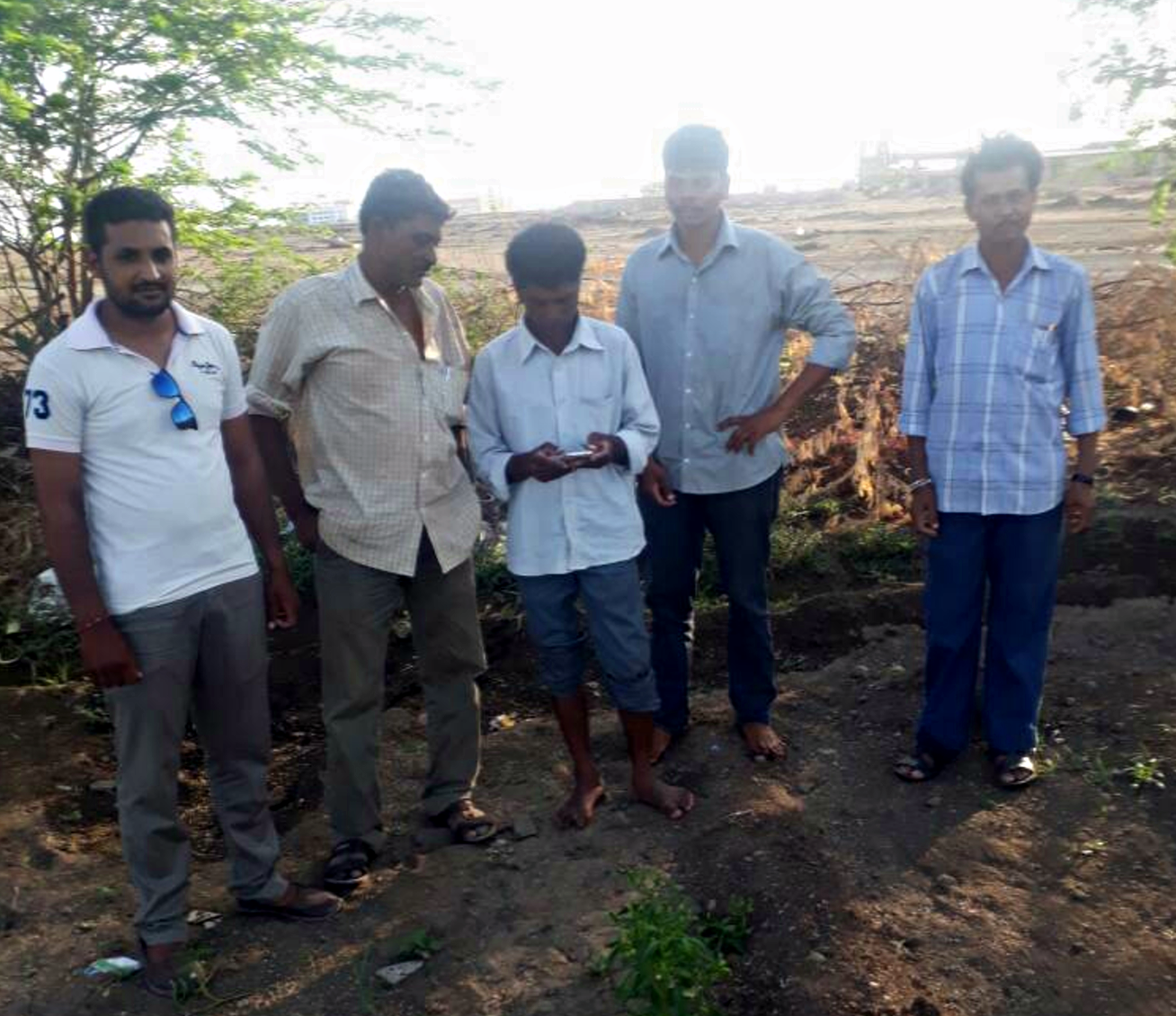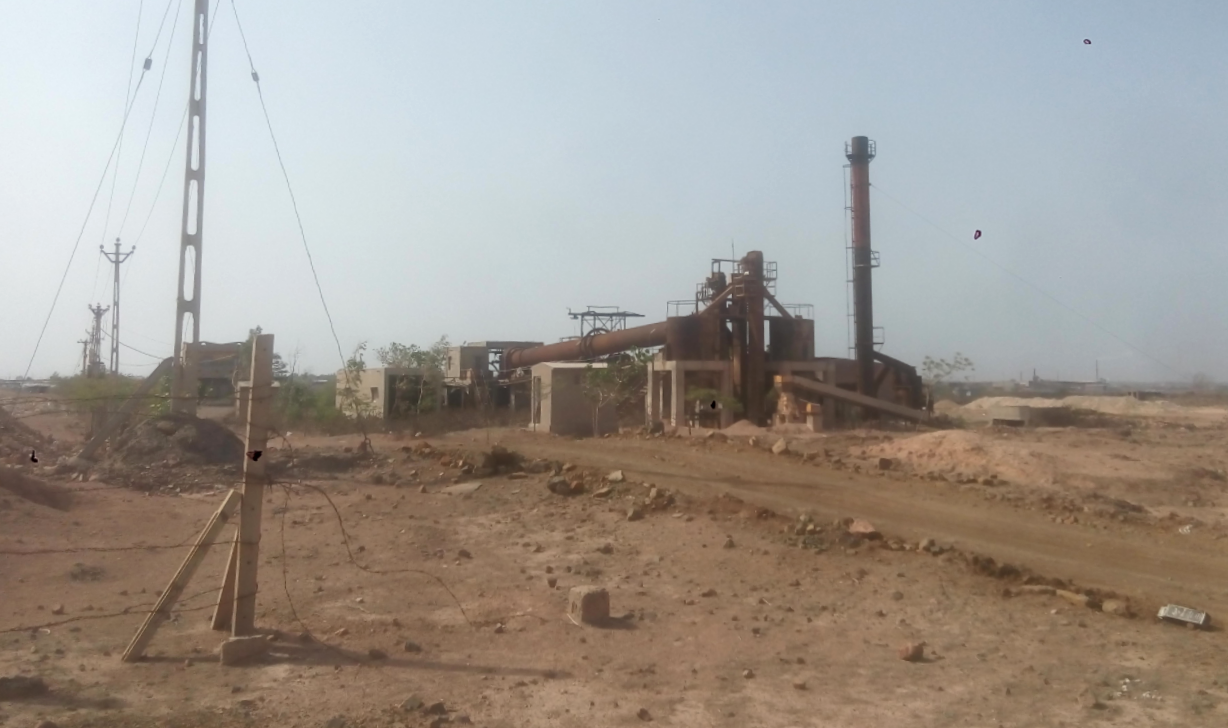In the Press | News & Blogs | Stories
Biting the Dust: How community action stopped a polluting refinery
The following blog WAS written by Jayendrasinh Ker, an Enviro Legal Coordinator with the CPR-Namati Environment Justice Program in India.
IT was originally published on myLaw, an online platform dedicated to making legal knowledge and learning accessible to everyone in India through quality content and courses.
Dineshbhai’s mobile number has its ringer off. But before that, he sent out a message to one and all: A success party is on, and everyone is invited.
I distinctly remember that day when my friends and I had met for a routine evening conversation and one of them brought up the topic of “dusting”. Somnath Celshine Bauxite Pvt. Ltd., he said, was creating too much of it. What he meant was that the company’s operation was generating a lot of dust which was polluting the area. He did not know whether it was toxic, but it was surely bothersome.
Over the last year and a half, I had gained a little knowledge about how laws can be used to control the problem of industrial dust, which I shared with them. We decided that we would try and visit the area next day to see it first hand and also meet the people impacted.
Somnath Celshine Bauxite Pvt. Ltd. is situated in Dharampur village of Jamkhambhaliya Taluka [in India]. Jamkhambhaliya is the main centre of the Devbhumi Dwarka District and is famous for its vegetable business. Farmers who belong to the Satvara community plant most of the vegetables, and in Dharampur village they make up about 90% of the entire population. They specialise in the skill of growing vegetables on small patches of land.
The impacts of ‘dusting’
When we visited the area, we met with Dineshbhai who told us that the company has been carrying out the activity of bauxite loading and unloading, and has also been processing it within the plant premises for the last 30 years.
This extensive use of Bauxite without applying any safeguards has caused mineral dust to spread in the nearby areas, especially on the farmlands. This has directly affected the ploughable land of the farmers. We saw a large, unprotected mound of Bauxite in an open plot area. There was also no sprinkling of water on it (sprinkling of water makes the bauxite dust floating in the air settle down).
The residents of Dharampur clearly told us, “We have been living near the company and cultivating vegetables. But there is constant dusting and it is impacting the quality of the vegetables produced.” I learned that it was because of this occurrence that farmers were not getting a good market price. I was not sure of the extent, but it was possible that it was also creating a public health concern for the entire farming community living around the company.
In summer when there is no crop on the field, the dust covers up fertile ploughable land. When monsoons follow, the water does not penetrate into the land due to the thick layer of bauxite dust. It makes it the land either unusable for cultivation or requires extensive inputs for making it ready for sowing. According to the farmers, annual farm production has gone down by 30%.
Working together to bring change
Dineshbhai was clear he wanted to do something. During my second visit to the area, I came back with specifics. We discussed the possibility of using the law and write the letter to the Gujarat Pollution Control Board (GPCB) on August 20, 2016. The GPCB, under Section 17 of the Air (Prevention and Control of Pollution) Act, 1981 (“Air Act”), can take action to correct the situation.
But this was not something that Dineshbhai and I could do on our own. We requested as many affected people as possible to come for a meeting. Here we informed them about this possible action to address the problem and 30 farmers willingly joined in. Dineshbhai’s persuasion mattered a lot.
We also needed evidence that could support our complaint. Using an application under the Right to Information Act, 2005, Dineshbhai managed to get copies of the company’s consent to operate and the earlier directions, and show cause and closure notices that were issued to it. These were related to the Air Act. It was only after finding legal hooks through all this that we were ready to send the formal letter to the GPCB asking them to visit the bauxite company.

Enviro-legal coordinator, Jayendrasinh, stands with Dineshbhai and a few of the other community activists
But no action was taken. We waited for one month and sent a reminder letter. Simultaneously, Dineshbhai and others also filed an RTI application enquiring if any action had been taken based on the letter. The GPCB still did not visit the company’s premises forcing us to write yet another letter to them.
Finally, Dineshbhai had to visit the GPCB in person and inform the regional officer that the company had violated the provisions of the Air Act and conditions of the consent to operate. He also highlighted that this has happened in the past too and the GPCB itself had issued notices. Dineshbhai asked the officials to visit the company and take necessary action.
Soon after, they did carry out a site inspection. Unfortunately, Dineshbhai could not be there but his brother and a few other villagers were present. During the visit, the officials took pictures of the standing crops and visually documented the actual on-ground situation.
Was the problem solved?
The site inspection report dated November 20, 2016 clearly recorded eleven problems, including the fact that bauxite was being loaded in the open plot area and the mandatory air filter bag (a device used to prevent bauxite dust from entering the chimney) had not been used by the company. It directed the company to take immediate and necessary actions to prevent the dust from flying out of the premises, and to run air pollution control instruments regularly. Instructions were also given to cover the crusher, conveyor belt and elevator belt and stop leakages. Some other technological compliance requirements were also clearly communicated.
Following the visit and directions of the GPCB officials, within two months of the complaint, the operations of the company were halted for three months. The visit report had clearly stated that the company had to inform to GPCB before starting the plant. Today, they have started using the filter bag, covered the bauxite pile in the plant premises and are taking precautions during the transportation. Dineshbhai and villagers of Dharampur continue to the watch. They have asked the GPCB to share a copy of the letter sent by the company to them, stating how they have complied with the law.
Dineshbhai’s party was a big hit and the vegetable farmers are relieved having received the remedy. After all, there is no “dusting” to deal with for now.

